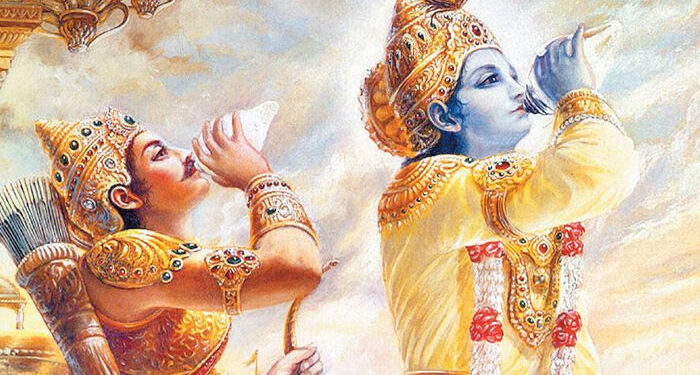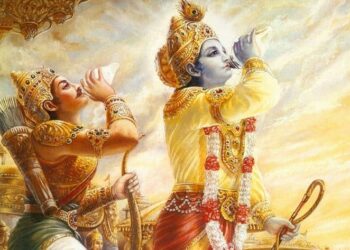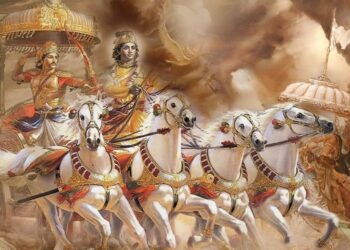TEXT 23
ye ‘py anya-devatā-bhaktā
yajante śraddhayānvitāḥ
te ‘pi mām eva kaunteya
yajanty avidhi-pūrvakam
SYNONYMS
ye—those who; api—also; anya—of other; devatā—gods; bhaktāḥ—devotees; yajante—worship; śraddhayā anvitāḥ—with faith; te—they; api—also; mām—Me; eva—only; kaunteya—O son of Kuntī; yajanti—they worship; avidhi-pūrvakam—in a wrong way.
TRANSLATION
Those who are devotees of other gods and who worship them with faith actually worship only Me, O son of Kuntī, but they do so in a wrong way.
PURPORT
“Persons who are engaged in the worship of demigods are not very intelligent, although such worship is offered to Me indirectly,” Kṛṣṇa says. For example, when a man pours water on the leaves and branches of a tree without pouring water on the root, he does so without sufficient knowledge or without observing regulative principles. Similarly, the process of rendering service to different parts of the body is to supply food to the stomach. The demigods are, so to speak, different officers and directors in the government of the Supreme Lord. One has to follow the laws made by the government, not by the officers or directors. Similarly, everyone is to offer his worship to the Supreme Lord only. That will automatically satisfy the different officers and directors of the Lord. The officers and directors are engaged as representatives of the government, and to offer some bribe to the officers and directors is illegal. This is stated here as avidhi-pūrvakam. In other words, Kṛṣṇa does not approve the unnecessary worship of the demigods.
TEXT 24
ahaṁ hi sarva-yajñānāṁ
bhoktā ca prabhur eva ca
na tu mām abhijānanti
tattvenātaś cyavanti te
SYNONYMS
aham—I; hi—surely; sarva—of all; yajñānām—sacrifices; bhoktā—the enjoyer; ca—and; prabhuḥ—the Lord; eva—also; ca—and; na—not; tu—but; mām—Me; abhijānanti—they know; tattvena—in reality; ataḥ—therefore; cyavanti—fall down; te—they.
TRANSLATION
I am the only enjoyer and master of all sacrifices. Therefore, those who do not recognize My true transcendental nature fall down.
PURPORT
Here it is clearly stated that there are many types of yajña performances recommended in the Vedic literatures, but actually all of them are meant for satisfying the Supreme Lord. Yajña means Viṣṇu. In the Third Chapter of Bhagavad-gītā it is clearly stated that one should only work for satisfying Yajña, or Viṣṇu. The perfectional form of human civilization, known as varṇāśrama-dharma, is specifically meant for satisfying Viṣṇu. Therefore, Kṛṣṇa says in this verse, “I am the enjoyer of all sacrifices because I am the supreme master.” Less intelligent persons, however, without knowing this fact, worship demigods for temporary benefit. Therefore they fall down to material existence and do not achieve the desired goal of life. If, however, anyone has any material desire to be fulfilled, he had better pray for it to the Supreme Lord (although that is not pure devotion), and he will thus achieve the desired result.


















